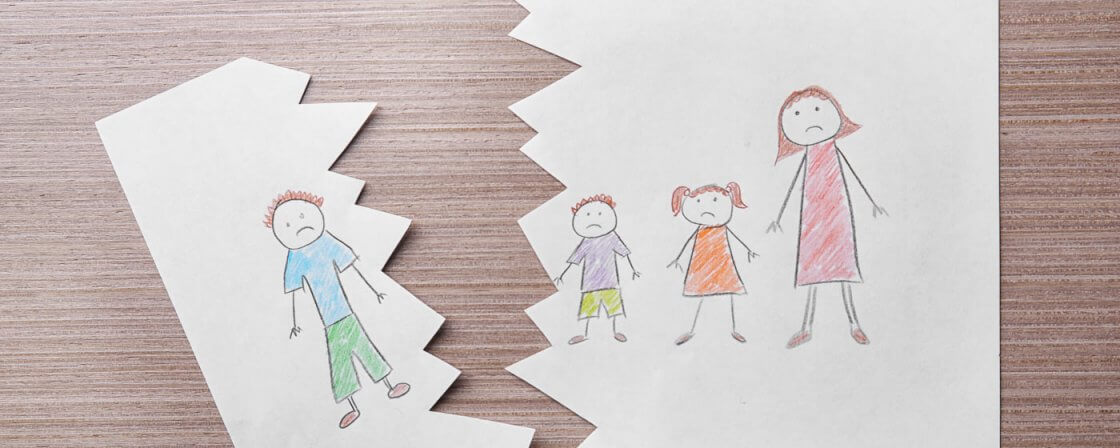Do we have to go to court for the kids?
If you separate amicably, you are likely to be able to agree on the future care of the children. Of course, an agreement is always the best solution. But do you have to go to court even if you agree? There, it will depend on whether you are facing divorce. If you were married and now want a divorce, the court will not divorce you before another court rules on the minor children. So a divorce with children starts in the custody court, where you must get a judgment regarding the children. This court will either approve your agreement or decide on its own if you cannot reach an agreement.
If you are divorcing but were not married, then the court will not necessarily decide about your children. If you agree, you don’t have to go to court. Only if the agreement is binding or if either party is breaking it can you go to court to decide about the children.
Options in child custody
A child can either be given sole custody of one parent (or possibly another person), or can be given alternate custody or joint custody. Neither of these models has automatic priority. The court always assesses the specific situation and tries to find the best solution in the child’s interests. If one parent has sole custody, the child spends most of the time with that parent, and then the other parent takes care of the child, depending on the agreement or the court’s determination. He or she also usually pays child support to the other parent. Joint custody is not a well-known or widespread option in this country. Both parents must agree to this form of custody. The court then does not regulate exactly who takes care of the child and assumes that the detailed care schedule and the financial aspect of the matter will be agreed between the parents or that they will actually take care of the child together. This option is chosen when the parents remain living together in the same household, or at least close by.
Whatever the care model, it is never constant. If circumstances change (a child starts school, communication between the parents changes, one parent moves, etc.), the court may change the original judgment.
What alternate custody means
With alternating custody, the child should spend an equal amount of time with both parents. They should therefore take equal turns in caring for him or her. In practice, they usually hand over the child after a week or 14 days.
Maintenance is usually set for both parents. It will depend mainly on how much the parents earn and, unless there is a significant difference, the maintenance will be the same, so in reality neither will pay and each will support the child when they have him or her with them. Larger costs such as school fees, paying for clubs and various more expensive equipment should then be shared by the parents.
Are you solving a similar problem?
Solutions Tailored for You
Our team of experienced attorneys will help you solve any legal issue. Within 24 hours we’ll evaluate your situation and suggest a step-by-step solution, including all costs. The price for this proposal is only CZK 690, and this is refunded to you when you order service from us.
I Need help
- When you order, you know what you will get and how much it will cost.
- We handle everything online or in person at one of our 6 offices.
- We handle 8 out of 10 requests within 2 working days.
- We have specialists for every field of law.
Who is alternate care suitable for?
Whether or not you and the other parent have agreed to alternating custody, the court will always look at what is best for the child. In the first instance, the court will look at how the child relates to both parents, but also to siblings and, where appropriate, grandparents. None of these relationships should be lost. Depending on the age of the child, the court will also determine what the child’s wishes are.
Both parents must, of course, be able and willing to care equally for the health of the children and for their physical, emotional, intellectual and moral development, if the children have the same deep emotional attachment to both parents and it is therefore in the best interests of the child. Another condition is that the parents should be able to communicate at least a little with each other in order for alternate care to work.
Tip for article
Tip: In late 2022, the Ministry of Justice introduced a new child support table. In connection with its publication, some of the principles for calculating child support have been slightly modified. So read on to find out how to calculate child maintenance in 2024.
When parents live far apart, it’s usually a hindrance
At first glance, shared custody may seem like the ideal fair solution, where the child enjoys both parents ‘equally’. However, this is not the best solution in every case. The courts often address the issue of the distance of the two parents’ homes. There are also cases where the courts have ruled on long-distance alternating custody, with children travelling every 14 days across the country, alternating between, for example, two kindergartens or primary schools. Recently, however, the Constitutional Court considered such a case and made it clear that the long distance of the parents’ homes would usually be a problem and that most children would find it too burdensome to change schools, so alternate care was not possible there.




